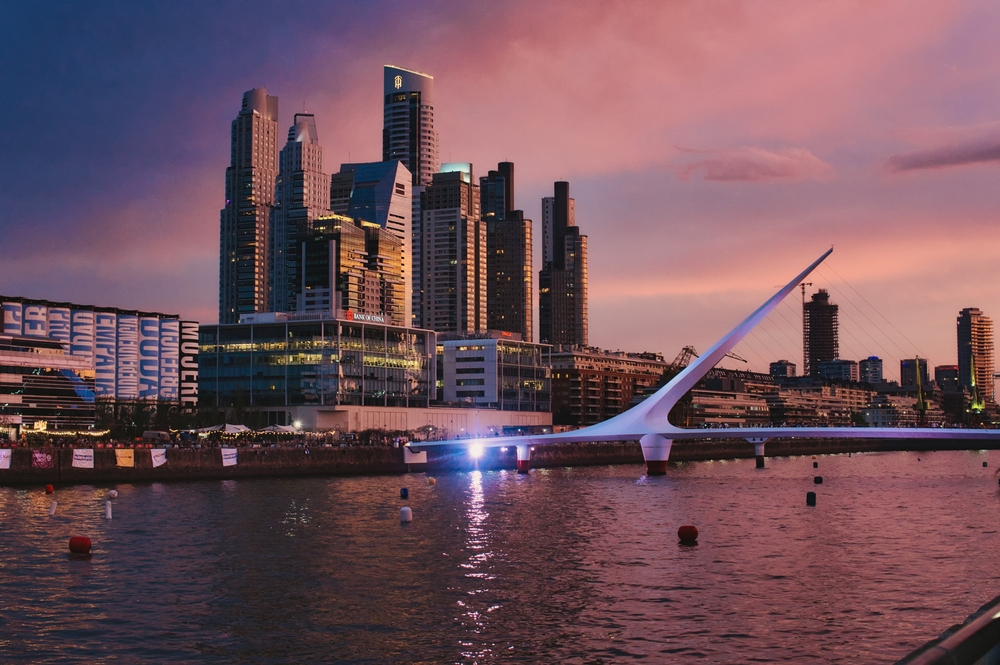Countries with No Income Tax: Dream or Reality?

Sounds like a dream, doesn’t it? Earning a paycheck completely untouched by income tax. And believe it or not, there are places where you can live that dream. But before you start planning your move to a tax-free paradise, it’s essential to understand both the benefits and the trade-offs that come with it.
Let’s take a closer look at some of the world’s most popular income-tax-free destinations, their residency requirements, and a few hidden taxes you might encounter along the way.
How Do Tax-Free Countries Stay Afloat?
When you think of a country with no personal income tax, it might feel like a financial utopia. But such countries don’t run on dreams alone. Public services like healthcare, infrastructure, and education still need funding, and tax-free nations have developed innovative ways to fill the gap. Let’s break down how these countries manage to thrive without relying on income tax.
Revenue Through Consumption Taxes
One of the most common strategies is imposing high consumption taxes like Value Added Tax (VAT) or Goods and Services Tax (GST). These taxes are applied at every stage of the supply chain, from production to the final sale to consumers.
Because these taxes are tied to spending rather than earning, they create a broad and steady revenue stream. Tourists, expatriates, and locals alike contribute to the economy every time they make a purchase, allowing the government to collect revenue even from non-residents.
For example, VAT rates in some tax-free countries can be as high as 15-20%, making it a significant source of government income. This structure encourages consumer spending while avoiding direct taxation on individual incomes.
Corporate Taxes: A Focus on Businesses
Many tax-free nations shift their taxation focus from individuals to corporations. A corporate tax is levied on company profits, ensuring that businesses contribute to the economy.
This approach is particularly effective in countries with strong international trade or financial sectors. By taxing corporate earnings, governments can maintain a stable revenue base without placing the burden on individual taxpayers. To attract foreign investment, these corporate tax rates are often competitive, striking a balance between revenue generation and business-friendly policies.
Resource-Based Economies
Some tax-free countries rely heavily on natural resources like oil, gas, or minerals to fund their economies. Revenue from resource extraction, export duties, and royalties can provide a substantial income stream, reducing or eliminating the need for personal taxation.
Resource-based economies often invest these funds into sovereign wealth funds to generate long-term financial stability. This ensures the country remains economically viable even when resource prices fluctuate or reserves are depleted.
Revenue Through Import Duties and Fees
Another significant revenue source comes from import duties and service fees. By imposing tariffs on imported goods, governments not only encourage the consumption of local products but also collect revenue from international trade.
In addition to import duties, some countries charge fees for services such as visa processing, property registration, and licensing. These fees, while seemingly minor, can add up to a substantial revenue stream, particularly in nations with thriving expatriate communities.
Public-Private Partnerships
Many tax-free countries foster public-private partnerships (PPPs) to develop infrastructure and public services without burdening taxpayers. In a PPP, private companies fund, build, and operate projects like highways, airports, or utilities in exchange for long-term revenue-sharing agreements.
This model allows governments to provide services while keeping their spending—and the need for direct taxation—relatively low. PPPs also stimulate economic activity by involving the private sector in national development.
Encouraging Economic Growth
The absence of income tax often serves as an economic stimulus, attracting foreign investment, businesses, and skilled professionals. In turn, this growth generates additional revenue through indirect means, such as higher consumption, increased trade, and real estate activity.
By creating a striving economic environment, tax-free countries can offset the loss of income tax revenue with the economic benefits brought by a thriving population and workforce.
The Balancing Act
Running a tax-free economy is a delicate balancing act. Governments must diversify their revenue streams, manage public spending efficiently, and ensure that alternative taxes don’t deter businesses and individuals from staying or moving there.
This model may seem like an ideal solution, but it requires meticulous planning and resource management to maintain financial stability while offering a tax-free lifestyle to residents and expats.
Living Tax-Free: Insights into the World’s Most Appealing Destinations
Here’s a look at some of the world’s top destinations offering a tax-free lifestyle, each with its own appeal.
Living tax-free in the UAE
The United Arab Emirates (UAE) is one of the most sought-after destinations for those seeking a tax-free lifestyle. With no personal income tax, it’s a magnet for expats and high-net-worth individuals. But behind the allure lies a complicated system that makes sure the country generates sufficient revenue to sustain its economy.

How the UAE stays tax-free?
While there’s no personal income tax, the country levies a 9% corporate tax and a 5% VAT. Revenue from oil, trade, and tourism also helps keep things running smoothly. However, living tax-free here doesn’t come cheap, as the UAE has one of the highest costs of living in the region.
To qualify for the UAE’s tax-free benefits, you’ll need to spend at least 183 days in the country annually or meet their 90-day residency criteria. It’s a luxurious lifestyle, but it comes with its own set of costs.
The Bahamas: A Tropical Tax Haven
If warm beaches and turquoise waters sound like your ideal lifestyle, the Bahamas might be calling your name. This Caribbean gem offers no income, capital gains, or inheritance taxes, making it a favorite among retirees and wealthy expatriates.
But before you grab your flip-flops, keep in mind the residency requirements. Permanent residency requires an investment of at least BSD $750,000 in property. There’s also VAT and import duties to consider, which can quickly add up in a country where many goods are imported.
To maintain tax residency, you’ll need to spend at least 90 days in the Bahamas each year. Still, with its proximity to the U.S., the Bahamas remains an attractive tropical escape for those seeking a tax-free lifestyle.
A luxurious life in Monaco
Monaco has been income-tax-free since 1869, and its reputation as a luxurious haven for the ultra-rich is well-deserved. ____ along the French Riviera, this glamorous city-state is synonymous with wealth, yachts, and the world-famous Monaco Grand Prix.
While Monaco doesn’t tax your income, it does come with a hefty price tag—especially when it comes to real estate. Property prices here are among the highest in the world, and VAT applies to goods and services.
To qualify for Monaco’s tax-free benefits, you’ll need to live in the country for at least 183 days per year. For those who can afford it, Monaco offers a unique blend of prestige, security, and a sun-soaked lifestyle.
Beyond the Big Names: Other Tax-Free Destinations
The list doesn’t stop at the UAE, the Bahamas, and Monaco. There are several other countries that offer no income tax but come with their own quirks:
- Bermuda: No income tax, but high import duties and a steep cost of living.
- Cayman Islands: Another tropical favorite, but housing can be pricey, and residency requires significant investment.
- Qatar: No income tax and a rapidly modernizing economy, but the cost of living and cultural adjustment should be considered.
- Bahrain and Oman: Gulf nations with no personal income tax, relying heavily on oil revenues while working to diversify their economies.
Each of these destinations has unique advantages, but it’s essential to weigh factors like the cost of living, residency rules, and hidden taxes before making a decision.
The Trade-Offs of Tax-Free Living
While a tax-free paycheck sounds like the ultimate dream, it’s not without its challenges. Many tax-free countries offset the lack of income tax with high costs in other areas, such as housing, goods, and services. Additionally, residency requirements often mean committing to a certain number of days in the country each year or making significant financial investments.
Before packing your bags, it’s crucial to do thorough research, evaluate your lifestyle preferences, and plan your finances carefully.
Ready to Make the Move?
Living in a country with no income tax is an exciting prospect, but it’s not a decision to take lightly.
Need help navigating your options? At Millionaire Migrant, we specialize in helping clients make informed decisions about investment and immigration opportunities. Contact us today to explore your options and plan your move to a tax-free paradise!


